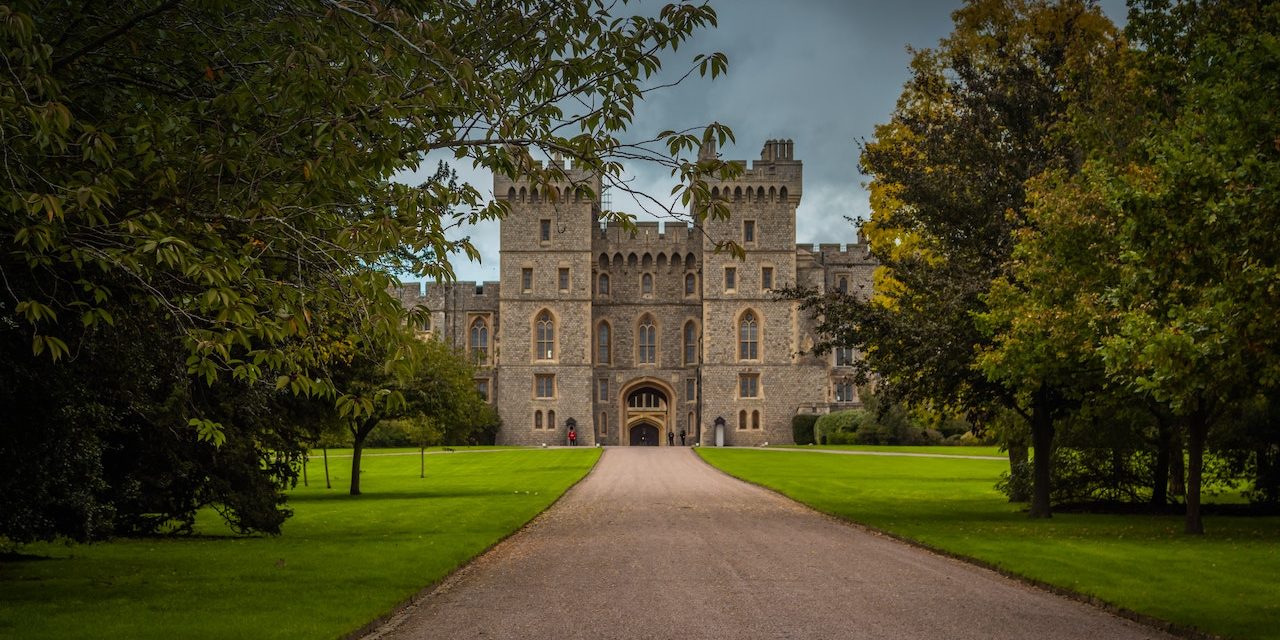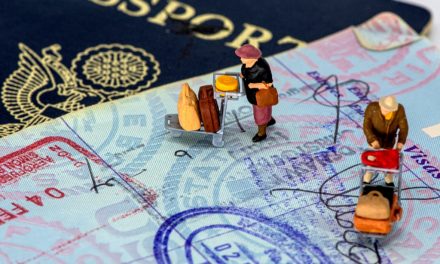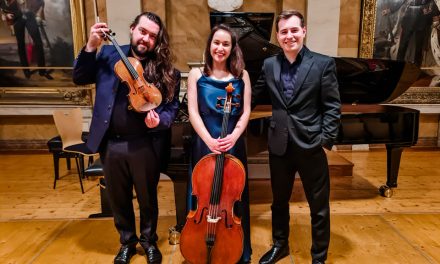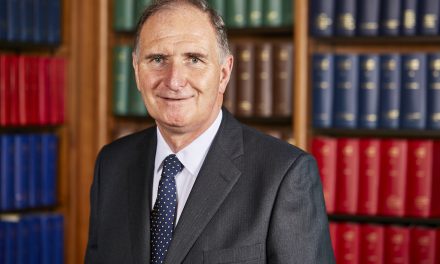Amidst the clamour for the Duke of Sussex to be stripped of his titles, Master Graham Zellick examines Prince Harry’s various titles – prince, duke, HRH. He analyses if and how they might be removed and the wisdom and likelihood of this being done, questions the accepted opinion that his Dukedom can only be removed by statute and considers his place in the line of succession.
Prince Harry’s behaviour has aroused interest in his titles and how he might lose them. It has been in his mind, too, and he has said that he raised the possibility in an email to his father in January 2020; but when asked in one of his notorious interviews why he hadn’t given up his titles, he answered: ‘that wouldn’t make any difference.’ It probably would make a lot of difference to Harry and Meghan, who clearly trade on their titles for their various branding, promotional and commercial activities. There was speculation, too, that a deal involving retention of his titles might be offered to induce his attendance at the Coronation, but that was clearly not the case; and if we are to believe the latest book on this royal soap opera (Robert Jobson, Our King: Charles III: The Man and the Monarch Revealed, John Blake Publishing, 2023), discussions about Harry’s ducal title are taking place at the highest level with differing views among senior members of the family.
The polls tell us that Harry’s popularity, both in the UK and the USA, has dramatically declined since the release of the Netflix documentary, Harry and Meghan, publication of his book, Spare, and the attendant round of interviews. More particularly, according to a YouGov poll at the end of last year, 44% of the British public think that Harry should be stripped of his ‘title’ (32% thought otherwise and 24% didn’t know).
It’s not clear what title the public had in mind. Is it just his dukedom (and subordinate peerages), which would still leave him a prince? If so, one might well ask, along with Harry himself, ‘what difference would that make?’ He would remain a prince and she a princess (though strictly speaking her title would be ‘Princess Harry’, which of course she wouldn’t like at all and who could stop her from styling herself, and being called, ‘Princess Meghan’?). It’s not clear that Duke and Duchess have anything over Prince and Princess. Indeed, many not versed in the niceties of British royal and noble titles would suppose that a prince outranked a duke.
The titles
So, let’s look at each of Harry’s titles and ask how they might be removed or surrendered. There are in fact four: His Royal Highness; Prince; Duke of Sussex and two subordinate peerages; and a knighthood. The answer in respect of everything is entirely clear and straightforward, except for the peerages, which are problematic.
The ‘Royal Highness’ honorific (not a title as such) is entirely in the gift of the Sovereign. It is usually conferred by stipulating those classes or categories who qualify, but there is no reason why the King should not do it on a wholly ad hominem basis. The accolade was conferred on the Duke of Edinburgh when he married the then Princess Elizabeth; and the Duke of Windsor was accorded the honorific following his abdication as King, although it was withheld from his wife, much to his bitter lifelong regret. At present, the Sussexes (like Prince Andrew, Duke of York) have agreed not to use the appellation while they have abandoned royal duties, but it is clear that it could be withdrawn by the King, a decision that would not be amenable to judicial review. In any case, removal of the honorific on the basis of giving up the role of a working member of the Royal Family and living abroad could hardly be faulted. This is the ‘title’ most easily removed and most likely to be removed if relationships are not repaired and Harry continues his relentless assault.
The title of Prince is likewise in the gift of the Monarch. As with ‘HRH’, it is usually acquired by coming within a class or category stipulated in letters patent, but it can also be done individually, as when the late Queen Elizabeth made her husband, the Duke of Edinburgh, a Prince in 1957. The current practice is found in Letters Patent of 1917 issued by George V. Three categories were identified: the Sovereign’s children; the children of the Sovereign’s sons; and the eldest son of the Prince of Wales. Under this edict, Prince Edward’s children were entitled to the styles of HRH and prince and princess, but in 1999 prior to their marriage, the late Queen agreed that any children they might have would not enjoy those titles. The 1917 rules were amended by Elizabeth II in 2012 by the addition of all the children of the Prince of Wales’s eldest son, which is why all their children bore the HRH designation and the titles of prince and princess even before Charles became King. It was under the second category of the 1917 pronouncement that Harry’s children automatically acquired their princely titles on their grandfather’s accession to the Throne, despite their parents’ withdrawal from royal duties.
There is no reason why the Sovereign cannot remove these titles, a decision which again could not be challenged in the courts, since the royal prerogative in relation to honours and titles is said to be unreviewable or ‘non-justiciable’. The exercise of prerogative powers is in principle subject to supervision by the courts in the same way that statutory powers are – as Boris Johnson discovered in 2019 when his attempt to prorogue Parliament was annulled by the Supreme Court – but powers exercised by the Monarch personally otherwise than on ministerial advice or in relation to honours fall into the non-justiciable category.
Next there is Harry’s appointment as a knight commander of the Royal Victorian Order (KCVO) which would make him Sir Harry if all other titles were lost. Whether he would use that title may be doubted. Meghan would be Lady Mountbatten-Windsor, not Lady Meghan, but doubtless would ignore the rules (as do many wives of peers, knights and baronets) and call herself (and be called) Lady Meghan, just as she currently ignores the rules by styling herself ‘Meghan, Duchess of Sussex’, which would be correct only if she were widowed or divorced.
Honours are normally withdrawn only on the recommendation of the Honours Forfeiture Committee following a criminal conviction, an adverse finding by a professional or regulatory authority or for other conduct bringing the honours system into disrepute (such as Fred Goodwin’s loss of his knighthood for his role in the collapse of the Royal Bank of Scotland). The criterion is whether the honours system has been brought into disrepute. Appointments in the Royal Victorian Order (like the Garter, Thistle and the Order of Merit) are in the personal gift of the Sovereign for services to the Monarch or the Royal Family. Unlike most other honours, they are not awarded on ministerial advice or through the normal honours system. It is customary for the Monarch to confer awards in the RVO on members of the royal family. It is unlikely that the King would see fit to cancel Harry’s knighthood, but if he did, it is again unlikely that any challenge would be entertained by the courts.
The peerages: creation and removal
That leaves Harry’s three peerages to consider: his Dukedom (of Sussex), Earldom (of Dumbarton) and Barony (Kilkeel) created on his marriage in 2018. By custom, his oldest son, in the absence of any princely title, should by courtesy be known by his father’s next most senior title, so Archie should have been known as Earl of Dumbarton, but his parents declared that their children would not use their courtesy titles. It would have been for the children to make their own decision about that when they came of age. On Charles’s accession to the Throne, their children, as children of a son of the Sovereign, automatically acquired the titles of prince and princess – Prince Archie of Sussex and Princess Lillibet of Sussex – and this has now belatedly been acknowledged on the Royal website.
The late Queen conferred the peerages on Harry in the exercise of the Royal Prerogative. Peerages for members of the Royal Family is one of those prerogative powers that can be exercised by the Monarch without ministerial approval or advice. It might be supposed that what can be conferred can be removed. If the creation is by letters patent, why cannot the letters patent be cancelled or revoked, which they can be in most instances simply by issuing new letters patent?
The universal view, however, is that it is not possible to do this, and a peerage can be removed only by Act of Parliament. That could take the form of an ad hominem Bill or one establishing a general power and procedure for removing peerages as in the 1917 statute described below (1) . It is said that this has been the accepted position for centuries and was the method adopted when peerages were last removed. This view finds expression in the textbooks (such as Palmer’s Peerage Law in England, Gadd’s Peerage Law and Halsbury’s Laws of England) and in a House of Lords Library briefing paper; it is also the opinion of commentators. This is probably the advice given to the King, but there is good reason to doubt that this view is correct.
It is pointed out that the last time it was desired to remove peerages it was done through statute. It occurred during the First World War when several German relatives of the British Royal Family holding UK peerages (and thus seats in the House of Lords) and princely titles were serving in the German army when Britain was at war with Germany. Hence, the Titles Deprivation Act 1917 was passed ‘to deprive enemy peers and princes of British dignities and titles’.
The Act established a formal procedure for the removal of a peer’s titles. A committee of the Privy Council could be established which could take evidence and report the names of British peers or princes ‘who have… borne arms against His Majesty… or who have adhered to His Majesty’s enemies’. The report would be laid before Parliament and, if not disapproved, would be submitted to the King who would remove their titles. This process was activated and four people were named. In 1919, they lost their British titles.
There are several reasons why this cannot be taken as a precedent in support of the proposition that a peerage can be lost only by Act of Parliament. First, its intention was to provide for an independent mechanism for establishing the facts on which a decision could properly be taken. Second, it was not intended to annul the peerage itself but merely to remove its enjoyment by the holder so named for the remainder of his life. A further procedure was prescribed by which the successors of those named could petition for the restoration of the title (though none ever did). Thirdly, it applied also to the title of prince, and it has never been suggested that such titles required an Act of Parliament to effect removal.
It is clear that a life peerage under the Life Peerages Act 1958 cannot be removed other than by Act of Parliament, since the Act states explicitly that a peerage under the Act is conferred ‘for life’. It follows that it would take a statute to deprive a life peer of the peerage. (Peerages of any rank can be conferred for life other than as baronies under the 1958 Act, but they confer no seat in the Lords. Interestingly, the Dukedom of Edinburgh recently conferred by the King on his brother, Prince Edward, has been conferred for life, which means that on Edward’s death, the Dukedom will be available to the Crown for conferment on someone else.) Members of the House of Lords can now resign or be expelled (House of Lords Reform Act 2014 and House of Lords (Expulsion and Suspension) Act 2015), but in neither case is the title affected.
Harry’s peerages are not life peerages and are not created under any statutory provisions. They are hereditary peerages created under the royal prerogative. Several reasons are advanced why hereditary peerages cannot be removed by the Monarch.
The main reasons are, first, that revocation of the patent would necessarily have retrospective effect and deprive all previous holders of the title of the style and dignity enjoyed in their lifetime without cause; second, that as a hereditary peerage conferred membership of the House of Lords it would not be constitutionally proper for the Crown to be able to interfere with membership of the legislature by prerogative power; and third, that a peerage is a form of property – an ‘incorporeal hereditament’ – which cannot be informally removed.
The first two arguments have no application to Harry. First, as this is a first creation, there are no previous holders of the titles whose status would be posthumously affected by the cancellation. Secondly, and far more significantly, since the House of Lords Act 1999, a hereditary peerage no longer confers membership of the House of Lords. The Duke of Sussex is not and never has been a member of the House of Lords, and the late Queen’s action in conferring a peerage on Harry did not have the effect of making him a member of the legislature. The 1999 Act, in removing membership of the House of Lords from a hereditary peer, fundamentally altered the legal character of a peerage and undermined any principle that a peerage (at least of first creation) required statutory authority for its removal. All the old cases suggesting that only a statute could remove a peerage were rendered obsolete. As for the property argument, it is difficult to see how this quaint notion would have any resonance in contemporary jurisprudence. Hence the conclusion that a hereditary peerage of first creation can be withdrawn by revocation of the letters patent creating it, which is done simply by issuing new letters patent.
What about voluntary surrender of the peerages by Harry? A wish to be relieved of a peerage has no legal significance. A person who inherits a hereditary peerage may, under the Peerage Act 1963, disclaim the title within one year of succeeding to the peerage. It cannot be done later; and in any event has no application to someone like Harry who has accepted the offer of a newly created hereditary peerage. There are a number of hereditary peers who do not use their titles but have not formally disclaimed them.
Of course, if Harry were to come to some accommodation or reconciliation with his father which involved removal of his peerages, then the King might be emboldened to cancel the letters patent creating the peerages in the exercise of his prerogative powers, there being no risk of a judicial challenge. Or a short Bill could be introduced which would presumably reach the statute book easily and quickly. It is more likely, though, that any agreement would involve retention of the titles so obviously dear to Harry’s heart (and wallet).
If, however, the King sought to act without Harry’s agreement or acquiescence, it could not be said with any confidence that the litigious Harry would not challenge the decision in the courts. It is unlikely that the courts would subject the exercise of the prerogative in relation to a royal peerage to judicial review, but Harry could seek a declaration that his peerages were intact despite the King’s action on the basis that once conferred a peerage could be removed only by Act of Parliament.
Even if such an action would be thought to fail, would the King wish to expose himself to the risk of litigation in such circumstances? That, then, would argue for a Bill in Parliament, but that would require the government’s agreement. How would such a Bill fare in its parliamentary progress through each House? Would it have as smooth and speedy a passage as the uncontroversial Counsellors of State Act 2022, which merely added the Princess Royal and Prince Edward, Duke of Edinburgh to those able to act as Counsellors of State, without seeking to remove either the Duke of York or Sussex. All this suggests that Harry’s titles are probably safe at least for the time being.
Line of succession
A more important issue than titles is Harry’s position in the line of succession. He is currently in 5th place after William, the heir apparent, and his three children. If there were a terrible family tragedy and William and his children all perished, Harry would succeed to the Throne, an event which would imperil the Monarchy. The order of succession can be altered by statute but not otherwise. It is conceivable that an agreement arising from permanent residence outside the UK and absence of royal duties could lead to Harry’s removal from the line of succession. If that were to happen, the statute could also remove him as a potential Counsellor of State as well as deal with his titles, but the likelihood is that any deal would involve retention of the ducal and princely titles if not the HRH.
Acknowledgements
While no views expressed in this article should be attributed to them, I am extremely grateful to the following for their thoughts and insights on the issues canvassed here: Grant Bavister of the College of Arms and formerly of the Crown Office; the Rev Canon Dr Peter Galloway, LVO, OBE, FSA, Honorary Professor, Brunel University; and Mrs Elizabeth Roads, LVO, FSAScot, formerly of the Court of the Lord Lyon and a Scottish herald.
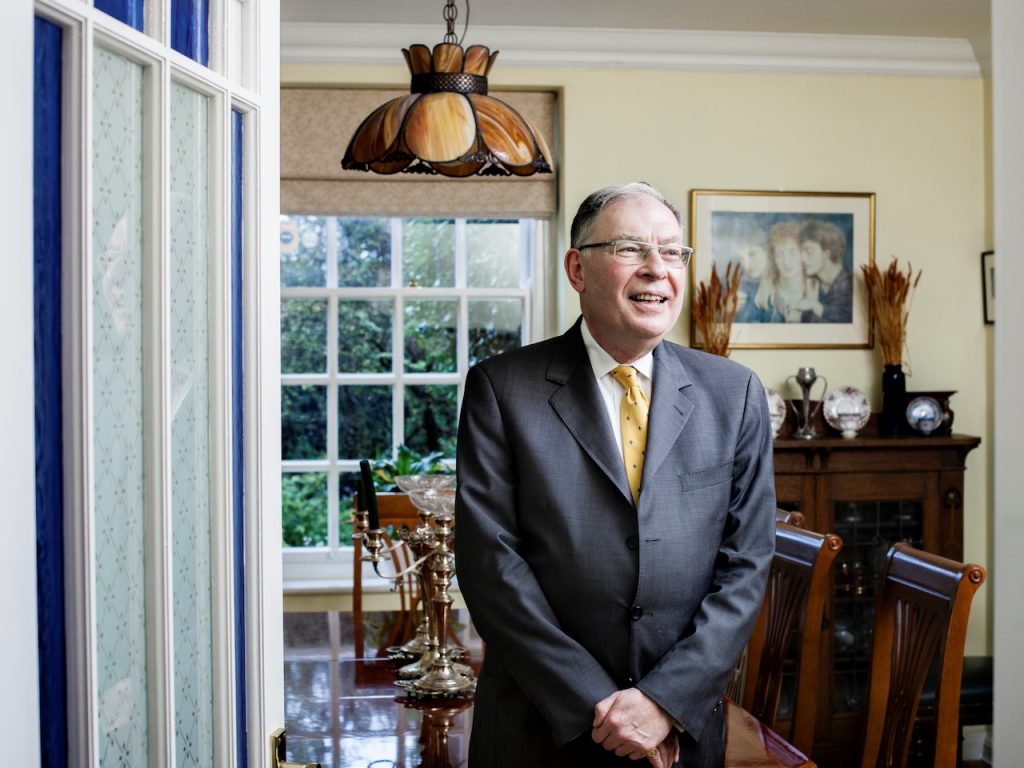
Master Graham Zellick is a Senior Master of the Bench and former Reader, is emeritus professor of public law and former Principal of Queen Mary & Westfield College, sometime Vice-Chancellor of the University of London, a former editor of Public Law, and was Chairman of the Criminal Cases Review Commission, President of the Valuation Tribunal for England and a member of the Investigatory Powers Tribunal. He is an Honorary Fellow of Gonville & Caius College, Cambridge and of the Society for Advanced Legal Studies.
- A general power to such effect was the device chosen by Rachael Maskell, the Member of Parliament for York Central, who in 2022 introduced the Removal of Titles Bill ‘to give the Monarch powers to remove titles; to provide that such removals can be done by the Monarch on their [sic] own initiative or following a recommendation of a joint committee of Parliament . . .’ This was prompted by evidence suggesting that a majority of the population of York wished to see the Duke of York (Prince Andrew, the King’s brother) lose his title which, they felt, associated him with their city. The titles covered by the Bill are hereditary peerages and baronetcies. Life peerages are inexplicably excluded. The Bill provides that the King may remove any such title on his own initiative, but it is not clear if this is meant to be a personal power or one exercised on ministerial advice. It is not limited to peerages conferred on members of the Royal Family, and would thus empower the Sovereign to remove an hereditary peer who was a member of the House of Lords from the legislature, which must be constitutionally improper. As it applies only to hereditary peerages, it would not extend, for example, to the Dukedom of Edinburgh conferred on Prince Edward for life. It is unclear whether the power would extinguish the peerage or baronetcy or merely withdraw it from the current holder. The Bill is seriously defective and poorly drafted and must be seen as a piece of political rhetoric to impress Ms Maskell’s constituents rather than a serious legislative proposal. ↩︎

